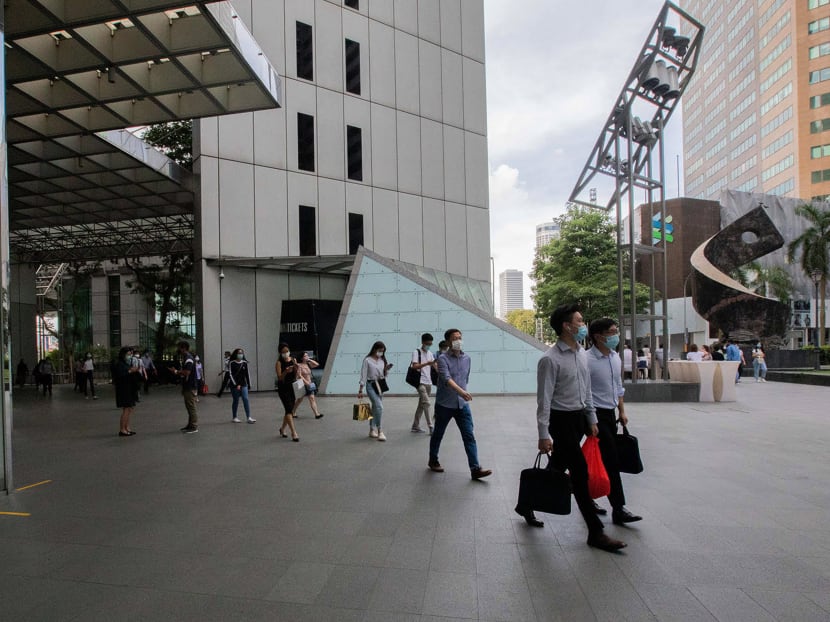Firms should be more proactive in pushing back xenophobia, nativism: Pritam Singh
SINGAPORE — Businesses need to do their part and play a more proactive role to address the concerns of Singapore workers at a time when xenophobic and nativistic sentiments are growing or the situation will get worse, Leader of the Opposition Pritam Singh said on Thursday (July 8).
- Firms need to play a more proactive role to fight discriminatory hiring, Mr Pritam Singh said
- If not, the problems of xenophobia and nativism will worsen, he added
- He suggested that HR policies must consider Singapore workers fairly and promote their skills retraining
- Firms should also conduct regular reviews of the number of Singapore workers at every level
SINGAPORE — Businesses need to do their part and play a more proactive role to address the concerns of Singapore workers at a time when xenophobic and nativistic sentiments are growing or the situation will get worse, Leader of the Opposition Pritam Singh said on Thursday (July 8).
The secretary-general of the Workers’ Party said that in order to do so, companies’ human resource (HR) policies must consider Singaporeans fairly and promote their skills retraining and upgrading.
Firms should also conduct regular reviews of the number of Singaporean workers at every level and the number of these workers transiting to the middle and upper management levels of a company, across all sectors, he said.
Such reviews ought to be incorporated as a “key performance indicator” for every company in Singapore, he added.
Mr Singh was speaking at the Distinguished Speaker Series event organised by the Singapore International Chamber of Commerce (SICC) when he sounded the rally call before an audience of 50, including SICC’s chief executive officer Victor Mills and its chairman Per Magnusson.
Mr Singh’s speech was delivered two days after People’s Action Party ministers engaged in a protracted debate with Progress Singapore Party members over its position on free trade agreements and foreign manpower in Parliament.
He also said at the event: “We can blame populist politicians, but their methods would have no cachet if there wasn’t a genuine emotive on the ground for them to tap in the first place.
“Some Singaporeans question our free trade agreements because they struggle to see how their lives and those of their compatriots have improved because of them. Singapore’s situation, as a trade hub and city state, makes the problem far more acute than imagined. It is a powerful fault-line.”
Mr Singh had said in Parliament before that the Government needs to seriously consider anti-discrimination laws with statutory penalties to send a powerful signal for businesses to change how it recruits manpower.
He raised this point again on Thursday and called on companies, such as those which are members of SICC, to consider lobbying the Government to pass anti-discrimination laws, which he said would not affect the majority of employers with progressive HR policies.
“If you lead the conversation and put forward your ideas, you can help to shape the conversation and the legislation.
“The Government is responsive to feedback from businesses generally. I would suggest that it would be even more responsive to calls from the business community to increase protection for workers.”
He reiterated that anti-discriminatory legislation is needed because what is in place now has its loopholes.
This is because employers “simply need to temporarily stop hiring foreigners” if they are caught unfairly hiring foreigners over Singaporeans, he said.
“Surely this may encourage some less-enlightened employers to game the system and try their luck. They hire unfairly and hope not to get caught. And if they are caught, then and only then, would they need to consider hiring Singaporeans.”
He said that employers should have stopped unfair hiring practices in the first place.
In persuading businesses to back his cause, Mr Singh said: “Companies that are trying to integrate themselves into Singapore need not worry about such legislation because you are already hiring fairly.
“Such legislation will ensure that your less enlightened competitors play by the rules that you are already imposing on yourselves.”
Referring to a 2018 survey reported in the latest Ministry of Manpower Employment Standards Report, which found that most businesses — 69 per cent — had put in place processes to ensure fair hiring practices, he placed the spotlight on the 31 per cent that still do not have such processes as of 2018.
The same report stated that the percentage of resident jobseekers who perceived discrimination during the job search process had increased from 10 per cent in 2014 to 15 per cent in 2018.
Stating that nativism — the idea that people who were born in a country are more important than immigrants — and xenophobia — the extreme dislike of foreigners — is “not going away in a hurry”, Mr Singh stressed that the support of everyone in the community is needed to address the issues at hand.
“The forces of xenophobia, in particular, are cancerous for a multiracial, multicultural state… Businesses are at the cutting edge of this fight,” he said.
“The SICC and your member companies are already partners of Singaporeans and have shown yourselves to be for nearly 200 years. Better managing nativism and the fight against xenophobia needs your help, too.”
On its website, SICC states that half of its member companies are Singaporean-owned businesses and half are foreign-owned. Half of its members are large organisations, including most multinationals, and the other half are small, medium and startup companies.









